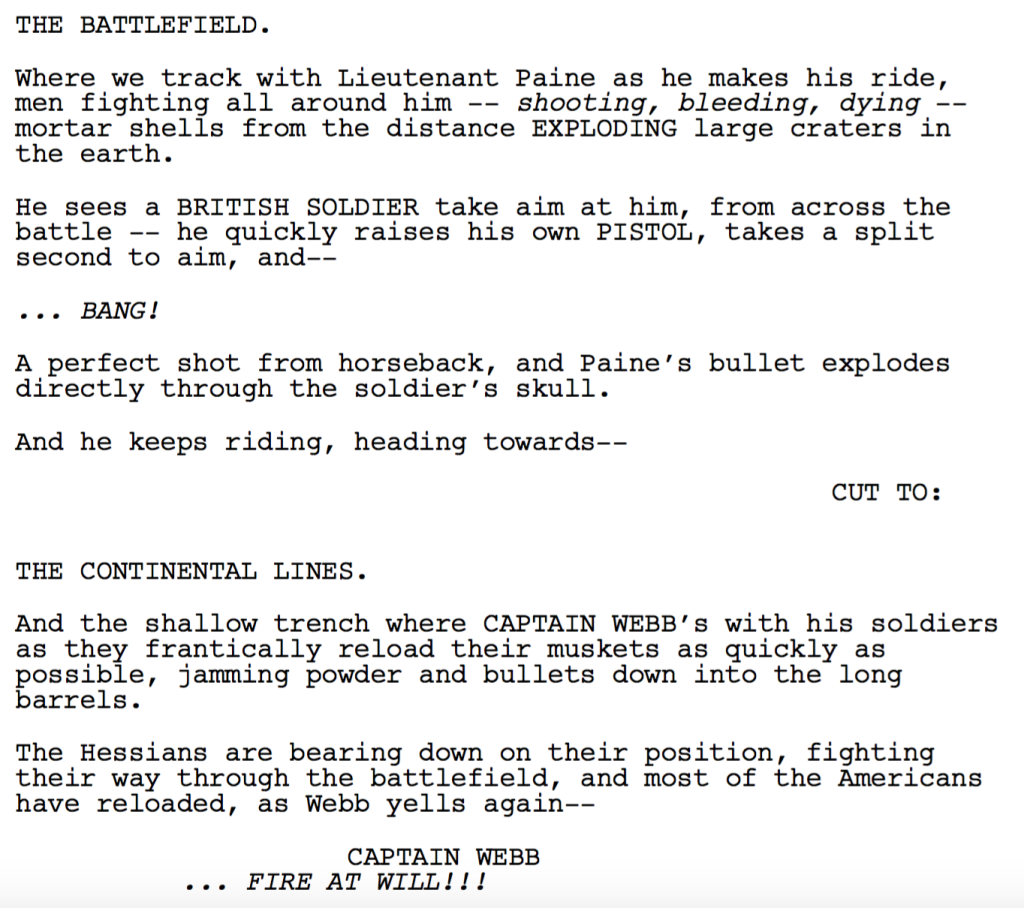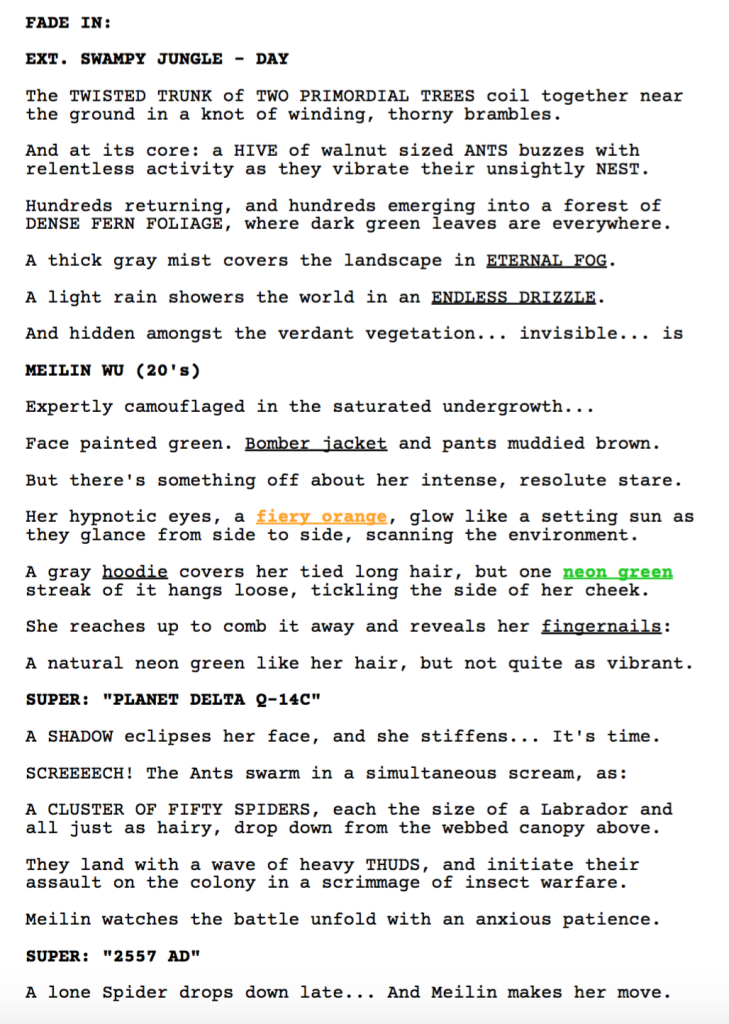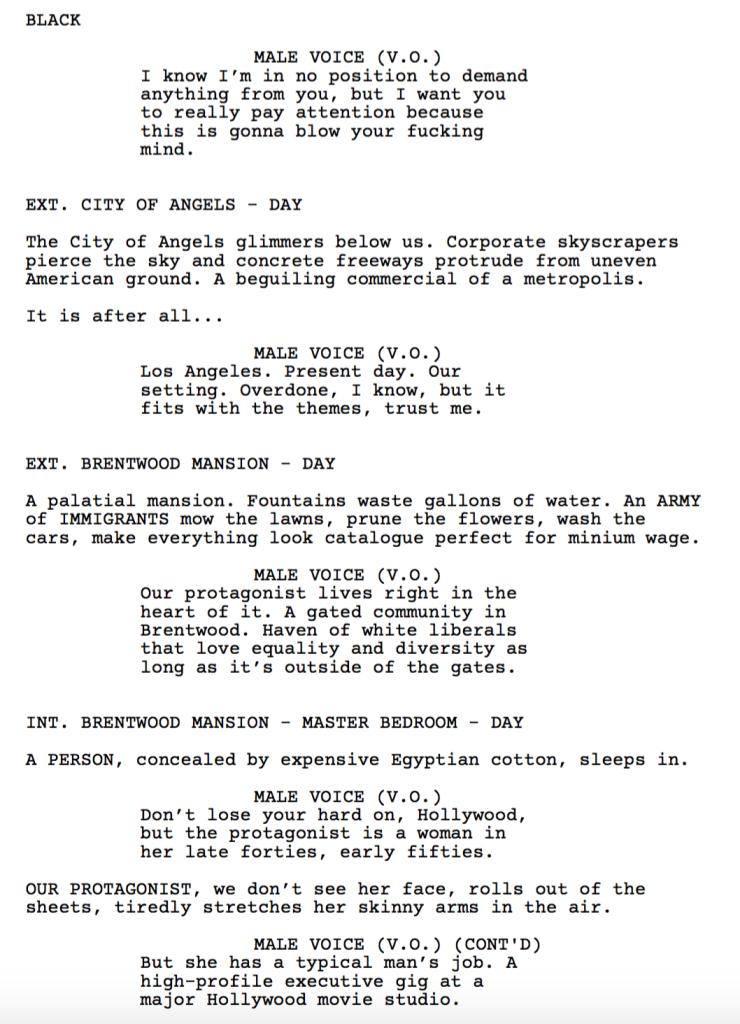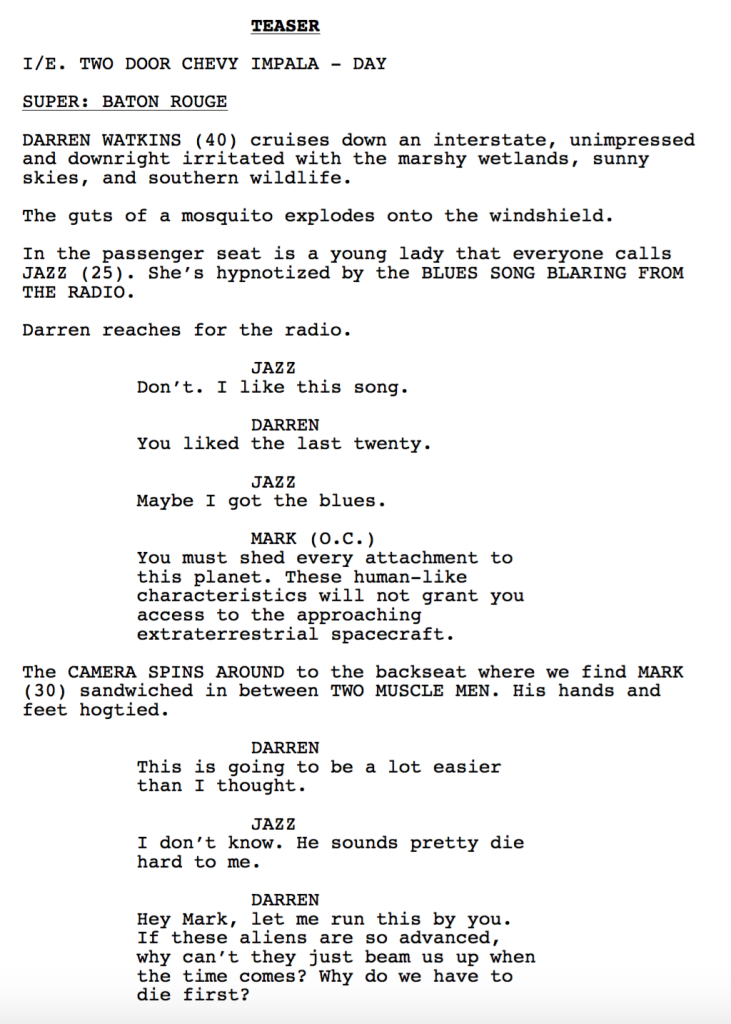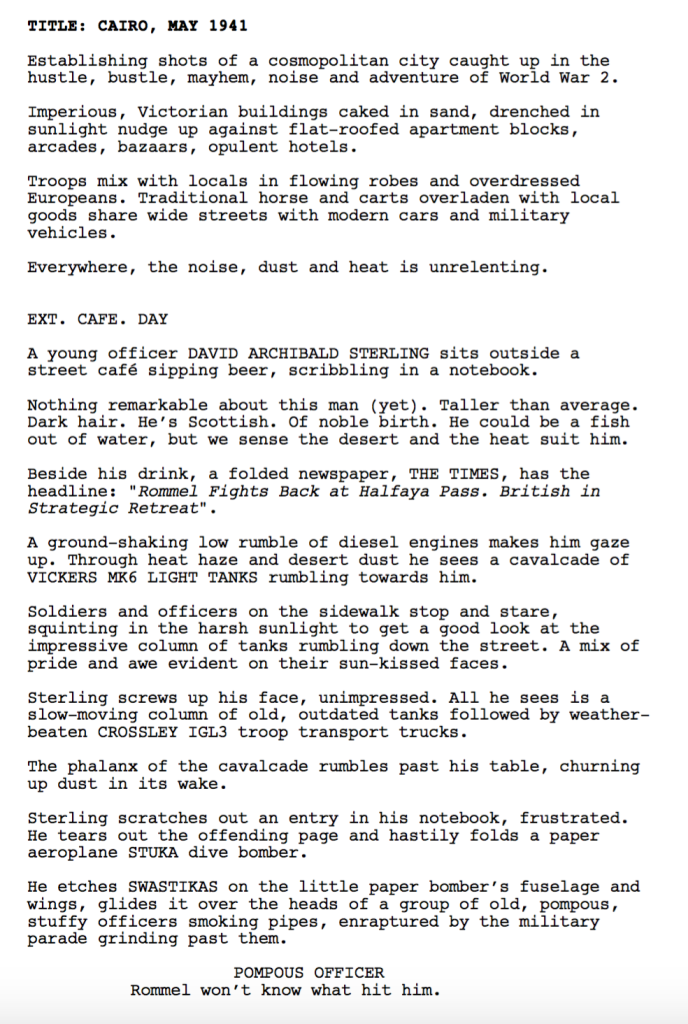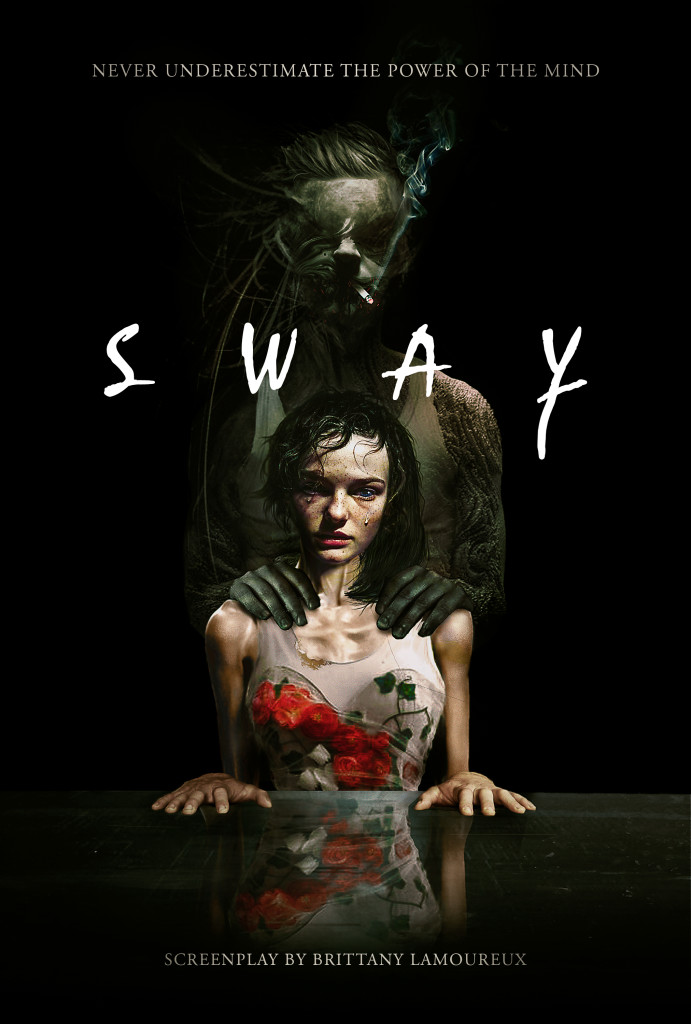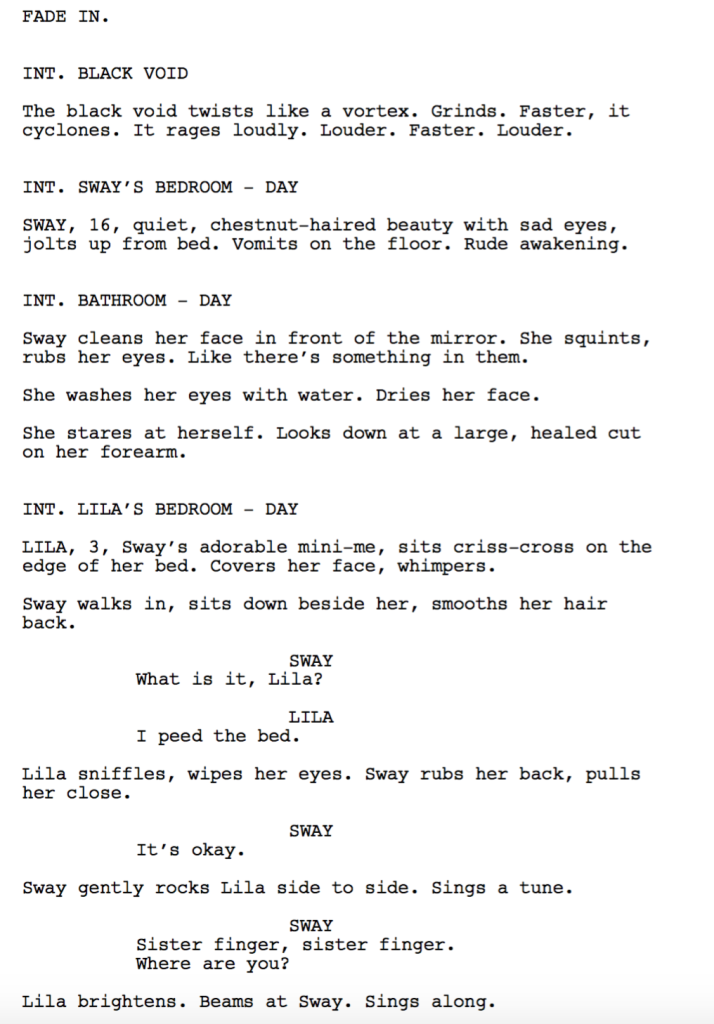Genre: Period
Premise: The Kennedy assassination told in real-time through the eyes of CBS news anchor Walter Cronkite.
About: Expect this project to shoot for a table at the Oscars next year. The high-ranking 2017 Black List script (Top 15) nabbed Seth Rogen to play Walter Cronkite and David Gordon-Green to direct. The rest of the cast hasn’t been rounded out yet, but there are rumors that Bryan Cranston and the Hulk, Mark Ruffallo, will sign on. The writer, Ben Jacoby, has a couple of small indies to his name, but nabbing a star like Rogen makes this his biggest career achievement yet.
Writer: Ben Jacoby
Details: 108 pages (undated)
Let me start off by saying I love the setup for this script.
I’m a sucker for juxtaposing period pieces with high-speed narratives. There’s something thrilling about turbo-charging a genre that’s traditionally slow as molasses. Don’t ask me where I developed this script kink but dammit if I don’t have it (share your script kinks in the comments section!).
I always say that if you’re going to dip your toes into the period piece waters, you’ve got two choices. Find an unknown great story and tell it. Or find a well-known story and find a fresh angle into it. Going real-time on one of the biggest news stories in history is a boss move.
The opening title card informs us that the following story takes place between 1:15 and 3:02 pm, November 22, 1963.
We meet a 47 year old Walter Cronkite hanging out at the CBS News offices, wondering if he’s going to have a job in a month. The ratings for his nightly news show are bad and his boss, Jim Aubrey, is threatening to replace him with a new show they’re currently shooting called Gilligan’s Island.
As Walter ponders his future, a shocking piece of news comes across the switchboard: “President’s been shot.” Walter and the rest of the newsroom jump into action and begin the excruciating process of trying to figure out what’s happening in a world before cell phones, before cable news, and before, well, anything.
Cronkite awkwardly interrupts As The World Turns to give a hit-and-run announcement that the president was shot. Quickly afterwards he sends the public back to the soap opera. This is how they did it back then. You didn’t stay on the air unless you had real news to report. And since that’s all the info he had, that’s all the info he gave!
Jim Aubrey flies into studio and starts arguing with Cronkite about how to report the story. He wants Cronkite on the air non-stop whereas Cronkite believes they need to do some information-gathering first. There’s a young reporter, Dan Rather, who’s managed to get to the hospital that’s treating Kennedy. If they’re patient, they can report the truth instead of rumor.
Aubrey doesn’t care about all that. He wants Cronkite to be the first to report Kennedy’s death. The intense showdown culminates in a fierce battle that ends with Cronkite on-air, refusing to report the death until it’s officially confirmed, even as the competition around them reports the death, one by one.
I gotta hand it to Jacoby.
Genius idea this concept is.
You take a famous moment in history. You tell that story in a non-traditional way (through a news reporter as opposed to Kennedy himself). You add a real-time component to spice it up. You’ve got the director-porn location of a 60s news station. You’ve got a main character that a bankable actor is going to want to play. You’ve got a budget-friendly setup in that the locations are limited.
I could never write a script like this because I don’t gravitate to the subject matter. But this is the kind of setup that gets a script made into a movie.
So why the hell didn’t I like it??
Let’s start with this this: I couldn’t tell if this was a movie or a documentary. Cause all it does is recount what happened that day. If all you’re going to do is recount, you might as well make a documentary.
The reason you make a movie is because there’s a compelling conflict to explore at the center of the story. For example, if you were to make a movie about the Cuban-Missile crisis, you wouldn’t just report how it happened. You’d zoom in on the fact that if the U.S. doesn’t get Russia to turn around, it may lead to nuclear war.
Where’s the conflict in a guy trying to get a story?
What happens if he fails?
I’m pretty sure the world would still find out that JFK was assassinated.
It seems like the conflict they’re going with is that if Walter Cronkite doesn’t nail this story, he MAY be let go from CBS News. Not WILL be let go. But MAYBE (quick Scriptshadow screenwriting tip: never deal in maybes with movies, always absolutes). But is the consequence of Walter Cronkite losing his job really what we’re worried about in the wake of one of the worst moments in American history?
The other conflict is between Aubrey and Cronkite in regards to whether they should be reporting news before it’s confirmed. This is always a compelling argument when it comes to news and happens to be timely in the wake of today’s media. The problem is that this conflict is late-arriving. It’s almost like the writer figured out, “Oh yeah, THAT’S what my movie’s about,” halfway into the script, then built the remainder of the movie around it.
This happens sometimes. You’re writing a script and it isn’t until well into the process that you understand what your script is about. If that happens, it’s your job to go back and pepper that theme throughout the first half of the story as well. The reader shouldn’t be able to identify the moment an idea struck you.
Despite these issues, I have admiration for this idea and how the writer approached it. Not to mention, I love writers who care about the reader. Every sentence here is an economy of words. There’s a ton of dialogue, which also makes the read fast. Pop this script open and read the first five pages. I guarantee you’ll whip through it in two minutes. That stuff never goes unnoticed by me. I just wish there was some true conflict to make this script pop. Maybe they’ll figure it out in the rewrites.
[ ] What the hell did I just read?
[x] wasn’t for me
[ ] worth the read
[ ] impressive
[ ] genius
What I learned: This is a great way to write a spec that makes the Black List and gets studio interest. Pick a famous moment in history. Something everyone knows about. Then find a slightly different angle to tell the story from. In this case, it was Kennedy’s assassination being told through the real-time exploits of a news reporter. In the number 3 script on the Black List, Keeper of the Diary, it was about Anne Frank’s experience, but told through her father trying to get her diary published. The famousness of the moment catches an audience’s interest, and the unique angle intrigues them enough to check it out.
Genre: Period/Action/War
Premise: Based on a true story, a young woman enlists in the Revolutionary War in a bid to help America win independence.
About: Today’s script was one of the big spec sales from 2016, fetching nearly seven figures due to an intense bidding war that Amy Pascal and Sony ended up winning. 33 year-old Christopher Cosmos ends up being one of the lucky first-time screenwriters to nab a big sale. The project is currently in development. But with its girl-power slant, it’s only a matter of time before the film gets made.
Writer: Christopher Cosmos
Details: 116 pages
Hollywood is in this new era where messages and agendas are becoming almost as important as the bottom line. Even when you’re promoting a more inclusive system, there are always people pointing out you’re not inclusive enough.
Take this weekend’s Mama Mia sequel, a film that is built around and stars multiple women. That should be championed, right? Not exactly according to some. Twitterverse couldn’t help but take shots at how the entire cast is as white as the inside of a coconut.
Don’t think for a second that the studios aren’t discussing these issues. And while they probably realize you can’t win over everyone, they’re going to try. Which is why any female-driven project is shooting to the top of the script pile these days.
I don’t care what a script is promoting or even what the subject matter is AS LONG AS IT’S GOOD. If you’ve got a great script to back up whatever you’re selling, I’m 100% with you. Let’s see if today’s script delivers.
20-something William Jaffers is living a nightmare. The trench he’s in is so filled with dead bodies that he has no choice but to stand on them while shooting at the approaching redcoats. When the British make a run at the Americans, William has no choice but to retreat.
While doing so, he watches two teenage brothers, James and Andrew Thomas, get shot. While dying, James makes William promise to deliver a letter he wrote to his parents. William survives the retreat and delivers the letter and devastating news to the Thomas family, and while there, takes note of a young maid named Deborah.
After William leaves, something comes alive in Deborah resulting in her wanting to join the war. The only problem is, it’s illegal for women to fight in the army. So Deborah has to sneak away, dress like a man, and join under false pretenses.
Ironically, after she joins, she’s assigned to be the assistant to a captain, which basically means she’s performing the same duties she did as a maid.
Deborah says “screw this,” and sneaks away to fight a mission to secure a bridge. Coincidentally, William is leading that mission. He notices something familiar in this new recruit, but doesn’t think much of it. Deborah performs heroically on the mission, helping obtain key British intelligence, which should help the Continental Army catch Lord Cornwallis, the leader of the British Forces.
Unfortunately, while prepping for the final battle, William discovers Deborah’s secret. Will Deborah be sent back to doing household chores? Or will William and the rest of the army realize they have one of the fiercest soldiers in the army – man OR woman – at their disposal?
American Rebel has one hell of an opening scene.
I’m talking Saving Private Ryan worthy. The way Cosmos describes the chaos of this battle placed me right in the thick of it.
But it’s not just the description of the battle. For these things to work, you have to introduce us to a character – in this case, William – and immediately make us like him so that we’re WORRIED for him. Without that emotional attachment, the words describing the battle mean nothing. They’re glorified description porn.
And this is something I alluded to yesterday. Stories don’t work unless we’re attached to the characters on an emotional level. Whatever approach or device you need to use to achieve that, do it. Cause if you think you can plop names down on the page and we’re going to give a shit, you can take your place in the Never Sell A Script Line.
Here’s the problem with American Rebel, though. It does a better job making us care about William than it does about Deborah. As a result, the script never quite works when it shifts to Deborah’s struggle. Because we always feel like even though this movie is about her, William is the guy who pulled us in.
To be honest, I’m not even sure why Deborah wanted to join the army. Two seconds after we meet her, William shows up to deliver the news about the dead sons. And, all of a sudden, Deborah’s determined to be G.I. Jane.
What were Deborah’s feelings about the war? What are her feelings about the British? What are her feelings about ANYTHING?? We don’t know. And therefore we’re kinda confused why she all of a sudden wants to fight. It would’ve made a lot more sense, for example, if she was the mother of these boys who were killed. Or the sister. But no. She’s just some random maid.
One scene could’ve solved this. Before William showed up, we could’ve had a dinner scene with the father and maybe some other men from town, and they’re all sharing their thoughts on the war and what’s going to happen, and Deborah, who’s serving them, can’t resist after a certain point, and interjects with her very opinionated take. Just one moment like that would tell us how passionate she was about this topic.
The rest of the script is a mixed bag. Cosmos is really good at describing action as well as delivering the occasional surprise. Things would happen in this script where I’d go, “Holy shit! I didn’t expect that to happen.” I always like being kept off-balance in a read. If I get too comfortable, it means I’m ahead of the writer. And Cosmos was always knocking me off my assumption perch.
But a lot of that was undermined by the handling of Deborah. I was never clear on what Cosmos was trying to do with the character. For example, Deborah’s secret is exposed three separate times, and there were zero consequences to any of it. The other character was slightly shocked, but ultimately shrugged their shoulders and said, “Who cares?”
So if nobody cared, why disguise yourself in the first place? This may sound nit-picky but if you’re going to build your story around the need to be disguised, then there needs to be consequences if that disguise is discovered. And there wasn’t. At the end of the script, I found myself pondering whether anything in the movie would’ve been different had Deborah been a male character.
Despite those issues, Cosmos did a really nice job with the historical details and the set-pieces here. I cared whether these characters were able to win this war and I was mostly looking forward to each sequence. For that reason, I give this script a worth-the-read.
[ ] What the hell did I just read?
[ ] wasn’t for me
[x] worth the read
[ ] impressive
[ ] genius
What I learned: Why does your hero want to go on their journey?? I’m amazed that writers overlook this question. Most of the time, the reason will be built into the premise. If there’s a serial killer and your hero is the detective assigned to the case, we don’t ever ask why he’s on this journey. He has to be. It’s his job! But for movies where that isn’t as clear, you, as the writer, need to make it clear. Or else we’re wondering the whole time why your character is even bothering. And in Cosmos’s defense, there is a scene at the end of the movie where Deborah’s asked this question and gives an answer. But it’s too little too late. We need to know that answer AT THE OUTSET. Or else we’re going to be confused the whole time.
What I learned 2: This is a good example of if you write a script in one of the 2 or 3 categories Hollywood is looking for at that moment, they’re willing to overlook weaknesses in the script.
Genre: Horror
Premise: (from Blood List) A rebellious teenage girl is sent to stay with her strict grandmother in the sleepy town of Cedar Falls, a place with many strange traditions, including a curfew banning anyone from going out at night.
About: This script finished #6 on last year’s Blood List, which is an unofficial list of the most liked Thriller, Horror, and Sci-Fi scripts in Hollywood. The writer, Dick Grunert, has a very active resume, working as everything from Assistant Director to Writer’s Assistant. He’s written on the highly popular animation shows Samurai Jack and Adventure Time.
Writer: Dick Grunert
Details: 112 pages
Today’s script, Curfew, attempts to build an entire plot around the simplistic concept of curfew. And you know what? I can see that working. Drop our poor hero in a remote town where nobody’s allowed to go out at night. You’ve got the mystery of curfew. The mystery of “What’s out there?” Sounds fun to me!
But, as always, the thing a reader is worried about when they open a script like this is that there isn’t enough meat on the bone. In fact, I’ll tell you exactly what goes through a seasoned reader’s mind when a script like this lands on his laptop:
Hero gets to town by page 10. Establish curfew rules by page 20. Our hero sees a few weird/scary things by page 30. Hero goes out after curfew at some point by page 45. Monsters chase her.
THEN WHAT??
What happens for those final 60 pages?
Because usually with a script like this, the characters run amok for 60 pages in a structureless free-for-all mess of repetition. The writer who knows how to navigate this problem is the one who gets the movie made. Let’s see if we’ve found that writer.
16 year old Megan O’Connell is doing the sorts of stuff a teenager does after her father dies. Drinking, smoking, and wrecking shit. After her and best friend Bekah total a stolen car, Megan’s mom has had enough. She dooms her daughter with the ultimate punishment – a stay with Grandma, who lives in the middle of Nowhere, Wisconsin.
Actually, the place is called Cedar Falls, and this is the first time Megan’s meeting her grandmother, Dorothy. Dorothy is not keen on having this troublemaker around, but she feels an obligation to do so, seeing as Megan is her son’s daughter. Dorothy instructs Megan that she only has one rule to follow – stay inside after curfew.
You’re talking to a girl who lives for the night, so Megan is immediately looking for ways to break curfew. When she meets a group of kids her age – Derek, Amy, and Brad – she thinks she’s found her partners in crime. The problem is her new friends are the Dork Squad. Especially when it comes to going out after curfew.
However, when a local church has a weekend “Lock-In,” Megan finally sees an opportunity to stir shit up. Once there, she and her gang make the bold choice to sneak into the night. And boy do they regret it. Within minutes, a shadowy creature yanks Derek into the shadows and tosses his head back at the rest of them. That can mean only one thing – RUN!
Eventually, Megan is able to make it to the sheriff’s station, who lays out the town’s deep dark secret. What are these things who come out at night? And why are they so strict about curfew? You’ll have to get your hands on the script to find out. Or just go to the comments section.
So…
Did the script fall victim to my “Simple Premise” fears?
Yes and no.
Grunert uses another method to battle the Simple Premise issue known as the “Delayed Reveal.” Instead of introducing the monsters in the first 15 pages of the second act, he draws things out. We don’t get our first monster until page 64.
This is a perfectly acceptable approach to the problem. If you introduce monsters too soon, it’s easy to run out of gas. How many “run from monsters” scenes can one person write before they start getting repetitive? I’ll give you a hint based on reading hundreds of these scripts – NOT MANY. So Grunert’s solution to delay all that monstering is clever.
However, delaying the candy being advertised in your commercial for that long only works if your character work is impeccable. By that I mean, you need to set up a couple of strong emotionally unresolved relationships. Look at A Quiet Place. It should be noted that they had their first attack way before page 64. Even so, they established a strong unresolved relationship between the father and daughter.
Here, there isn’t a single emotional thread for the script to hang its hat on. The central relationship, Megan and Dorothy, is as empty as this town’s streets after curfew. Dorothy has never met Megan. She doesn’t care about her. Megan doesn’t like Dorothy and there’s no attempt TO like her. The two never have a conversation that doesn’t involve exposition.
What you probably wanted to do here was build an unresolved relationship with the dead father. I have a friend whose father died young and he never forgave him for that. He felt abandoned. What if you did something similar with Megan? Dorothy, then, could be a conduit for Megan to finally find closure with her father’s death.
It’s not ideal. These things work better when the two characters who have a problem with one another are forced to work things out together. Like the son and the mother in The Babadook. But it’s better than nothing, which was what was on display here.
Why is this relevant?
Let me explain it this way. Have you ever gotten notes back on a script where the main critique was, “I didn’t feel anything.” Or have you gone to a movie where you enjoyed the overall experience but you felt like something was missing, like the overall experience was empty?
Lack of an emotional core explored through character relationships is usually the reason. When you don’t have that, it’s hard for us to connect on anything more than a surface level.
And look. If you don’t think that opportunity is there in your story, you can still explore the human experience within your hero. What are they battling inside? What do they need to overcome? If you look at Tully – which just came out on video – here’s a movie that’s all about what’s going on inside. This mother is overworked to the point where she’s lost her sense of self. And she needs to get it back. How much more of an emotional journey can one go through?
As much as writers think this stuff doesn’t matter, it does, if you want to stand above the pack at least. Cause anyone can put a plot together. But there are far fewer screenwriters who can explore the human condition. Which makes those writers a lot more valuable.
Curfew wasn’t bad. It could be a good movie. But it needs a rewrite focusing specifically on the stuff I brought up.
[ ] What the hell did I just read?
[x] wasn’t for me
[ ] worth the read
[ ] impressive
[ ] genius
What I learned: Split up dialogue between characters to make it more naturalistic.
There’s a scene in the script where Megan is talking to Amy, Brad, and Derek. The ritual of “curfew” is brought up. Even amongst the teens who live here, it’s controversial. Not everyone believes in it. Derek, the jokester of the group, isn’t sold, and says so. Amy replies, “Then what about Jeremy Singer?” Megan asks, “Who?” Amy then responds with this line….
“Jeremy was a few years older than us. He was having trouble at home — his father was an alcoholic and beat him.”
Notice how unnatural this sounds. It reads like a written checklist of things that need to be known about Jeremy. The thing is, Grunert had the solution to this clunky line at his fingertips. The very next line is Brad correcting Amy with, “It was his stepfather.” That correction makes the moment feel a bit more like a real conversation. That’s because real conversations have people chiming in, mistakes being made, other opinions being offered, corrections, laughter, finishing each other’s sentences. So when you have multiple people in a scene, you want to take advantage of that. A better exchange might look like this…
AMY: “Then what about Jeremy Singer?”
MEGAN: “Who?”
AMY: “A guy we knew. He was a few years older than us. His dad was an alcoholic.”
BRAD: “You don’t know that.”
DEREK: “I heard his dad beat the shit out of him.”
AMY: “Stepdad.”
DEREK: “Whatever.”
See how much more natural that sounds? Looking back at it, I’d probably eliminate “He was a few years older than us” even. That information doesn’t add anything. And since the line reads cleaner without it, I see no reason not to take it out. The point is, use the other characters in your scene to split the dialogue up and, in the process, make it feel more natural.
Man, we’ve got a good line-up this week. A lot of times I’ll put a group of scripts together and think, “I don’t see a single winner in the bunch.” But today, we’ve got a few. I can’t share which ones I feel that way about, of course, because I don’t want to poison the voting pool. But this is the first pack I’ve seen in awhile that makes me confident a “worth the read” is on the horizon. For those playing Amateur Offerings for the first time, read as much as you can from each script and vote for your favorite in the comments section. The script with the most votes will receive a review next week!
And if you believe you have a screenplay that’s better than anything Hollywood is making at the moment, submit it for a future Amateur Offerings! Send me a PDF of your script, along with the title, genre, logline, and why you think people should read it (your chance to pitch yourself or your story). All submissions should be sent to Carsonreeves3@gmail.com.
Title: ABORT
Genre: Sci-Fi
Logline: Stranded on a remote planet with no memory of her past, a young woman struggles to fix her ship while trying to outwit a manipulative alien AI whose sole purpose is to repopulate its creator’s species by using her as a host.
Why You Should Read: ABORT is an edge-of-your-seat, unpredictable journey full of deception, twists, turns, and reveals, as our protagonist battles massive monsters, a dangerous climate, and conniving AIs… all while coping with amnesia. Billed as GROUNDHOG DAY meets ALIEN, ABORT provides constant goals and mini-goals, frequent ticking time bomb situations, and the stakes are as high as they could be… life or extinction. — While the use of color in the script has proven quite controversial, we are confident that it adds an extra layer to the read, and provides a much needed sci-fi ambiance necessary to set the mood of the futuristic, but isolated world we’ve created.
Title: A Writer’s Acts
Genre: Satire / Thriller
Logline: After a mysterious writer blackmails her through a pitch that reveals her darkest secrets, a meek female executive must take matters into her own hands to discover the source.
Why You Should Read: I constantly hear about how trendy “female-driven” and “Jane Wick” specs are, so I decided to write a female-driven Jane Wick that resulted in being about as far away from John Wick as possible. — This might be a cutting satire of Hollywood and filmmaking on the surface, but at its heart this is a story of female empowerment, institutionalised misogyny and liberal hypocrisy. So relevant in the era of #MeToo and Harvey Weinstein. And I guarantee you that all of these issues are handled without ever getting preachy or partisan. — Script also made it to the Semifinals of the Script Pipeline Screenwriting competition.
Title: Follow ME
Genre: TV – One Hour Drama
Logline: Follows the life of a cult deprogrammer who uses unlawful methods to liberate individuals believed to be brainwashed by controversial belief systems, all while struggling to find peace within himself.
Why You Should Read: I became fascinated by the world of cult deprogramming after reading strories about Ted Patrick, who is considered the “father of deprogramming”. Deprogramming refers to the act of forcibly removing someone from a cult, holding them against their will in an undisclosed location, and using psychological methods to unbrainwash them. The work of a deprogrammer can be liken to the job of an exorcist. You basically have a person who is under the influence of someone else, and it’s up to the deprogrammer to rid that person of that influence. With groups like NXIVM and Scientology being featured heavily in recent headlines, psychologist Steve Eichel estimates that up to 10,000 cults still exist today…and they are more dangerous than ever. People’s lives are being ruined. People who have families that love, care, and depend on them. These families hire deprogrammers to save their loved ones…no matter the cost. Although “Follow ME” is a fictional story set in present day New Orleans, a lot of what happens in the series is all too real.
Title: DEATH FROM ABOVE
Genre: Action/War
Logline: In WW2, during the darkest days of 1941 when Rommel was overrunning North Africa, a brilliant unorthodox Commando David Sterling singlehandedly recruits and transforms a bunch of unruly, undisciplined commandoes into the world’s deadliest strike force, the SAS.
Why You Should Read: WW2 is a period of military history which I love. For me, some of the greatest movies of all time have a link to this monumental, global fight for freedom. DEATH FROM ABOVE is a product of that passion, an unbelievable, untold, true story about the birth of the SAS in North Africa in 1941. DEATH FROM ABOVE fictionalizes real events to bring alive Sterling’s heroic battle against the stuffy British establish and Rommel’s formidible Africa Korps to form the world’s first strategic guerilla warfare unit — the SAS. It’s also a story of the unique men who formed this elite unit and their disastrous first ever mission OPERATION SQUATTER. DEATH FROM ABOVE has been written with franchise potential in mind, so just deals with the birth of the SAS and covers the period until the fateful first mission. The script also hopefully qualifies as one of the hot selling topics according to Scriptshadow, a based on true events WW2 story.
Title: Sway
Genre: Drama/Sci-fi
Logline: Sway, A talented high school pianist with a hard home life gains the power of mind control but must strengthen it if she hopes to escape the clutches of her abusive, drug-pushing cousin.
Why You Should Read: Hey, name’s Brittany! I may not comment much but I read SS everyday. Been reading, absorbing, mostly writing. I come here with a script I’ve been working on for a little while. I’ve always wanted to write a “superpower” story set in the real, real world with very personal stakes for the main character rather than world altering ones. There’s very little special effects and no over the top sci-fi jibber jabber. It’s pretty contained and written with a low budget in mind. Chiefly, this is a story about how abuse victims grow defense mechanisms to help cope with their abusers. In this case, the victim gains an actual superpower. I look forward to any helpful feedback from Carson and the awesome SS community!
One last note! If you’re going to criticize loglines or first pages, please do so in a way that’s constructive. I’ve seen a lot of bitter responses to loglines lately. We’re all here to help each other, not make each other feel bad. It’s easy to reword a negative critique into something that gets your point across yet inspires the writer to improve. Thanks.
One of the most important factors in getting noticed as a screenwriter is writing a screenplay that Hollywood actually wants to make. This is one of the BIGGEST pitfalls I see writers fall into. I receive an endless number of scripts – scripts I even put in Amateur Offerings – that I know Hollywood will never be interested in. It’s just not their jam to make that movie. The secret to selling anything in life is understanding what your buyer wants. These are the ten movies the buyer (Hollywood) wants right now.
1) Girl with a Gun – It’s still a trend. It’s still marketable. We’ll see what happens when the big studio versions of these films start hitting theaters en mass. Maybe the movies will fizzle and the trend will die. But that time is not now. I’d like to remind you that when a trend hits its downslope, there is still opportunity to pillage its fruits. You simply combine the genre with another genre. A Girl in a Western with a gun. A Girl in a Horror movie with a gun. But the spirt of the original idea has to be there. Don’t give me a Girl in a Western with a gun who shoots her gun twice the whole movie.
Shout Out To: Guy With a Gun! These movies still sell. You just have to be more clever with your premises than Girl With a Gun movies. John Wick and The Equalizer won’t work anymore. You need an idea with a bit more creativity behind it.
2) Biopic – Just to be clear, Biopics refer to long-form character studies, meaning we see the character grow up over several time periods. If you’re only covering a short section of a person’s life (a week or a month) I’d place that more in the “true story” category. Biopics would be movies like the upcoming Bohemian Rhapsody, The Theory of Everything, and The Aviator.
Shout Out To: Clever narratives. To compete in the competitive biopic market, come up with a clever way into the genre. Steve Jobs is a good example of this. Instead of following Jobs’s life continuously, Sorkin focused on his three biggest product announcements.
3) True Story – The true story genre often gets mixed up with the biopic genre because true stories focus on real people and therefore we assume we’re reading a biopic. But true stories are more about covering one specific event in a person’s (or people’s) life. Mayday 109, an upcoming movie about a young John F. Kennedy saving a bunch of people after their boat sinks. The upcoming Pale Blue Dot, about a female astronaut traveling across the country to kill the fellow astronaut she had an affair with. The upcoming I’m Proud of You, about a depressed man who found a new lease on life when he befriended Mr. Rogers.
Shout Out To: Trashy real-life stories. Everyone thinks that if they’re going to adapt a true story, it needs to be serious and say something about the world. Let’s not forget that the infamous Zola The Stripper Twitter novel is anything but serious. That didn’t stop it from selling and getting made into a future film.
4) Social Issues – It’s hard to tell what’s going to happen with Social Issues screenplays moving forward. In the past, these movies have been relegated to low-budget indie dramas, like Fruitvale Station. But with The Black List being so liberal leaning, more and more social issues scripts are dominating the list. Just this past year we have a movie about the power of abortion, a Malcom X story, the Civil Rights case of Dr. Ossian Sweet, a second script about a famous abortion clinic, and even a script called “Social Justice Warrior.” With the recent transgender revolution, I’m expecting 3 or 4 scripts about transgenders to hit the 2018 Black List. Might yours be one of them?
Shout Out To: Writers who aren’t using social issues as a means of virtue signaling. Many social issues are complex and require a balanced look at what’s causing the issue. Your script is going to stand out if you respect that complexity.
5) World War 2 – There were no fewer that EIGHT World War 2 themed scripts on last year’s Black List, including two (Ruin and Keeper of the Diary) in the Top 5. World War 2 is a genre that routinely goes up and down but can always be depended on. Eight scripts makes it the most dominant subject matter on the list by far.
Shout Out To: Using real life events in World War 2 as inspiration to create your own story. One of the problems with true World War 2 stories is that the best ones have all been taken. If you use events and people as inspiration for a jumping off point to write a gnarly new take on the war, you have a shot at standing out from the crowd. This is what Ruin, the number one script on the list, did. Likewise with the newest script to make my Top 25, Max Landis’s Shadow in the Cloud (sorry no link – this review can only be accessed on the Scriptshadow Newsletter).
6) Contained Horror – Contained horror is still the NUMBER 1 WAY TO BREAK INTO HOLLYWOOD. If you can, make sure your contained horror movie contains either a ghost or a monster. Horror films without monsters are much tougher sells (though there are exceptions, like Get Out). How easy is it to break in with horror? They made a movie about the game Truth or Dare. It doesn’t take much to impress, guys. As long as your script is scary.
Shout Out To: Event Horror and Creature Features. After the success of It, we’re going to be seeing more big budget event horror in the coming years. Right now, this is an IP only avenue. But I expect that to change if someone writes a really scary big budget horror spec. Creature Features, while not as popular as they used to be, still have huge upside. Hollywood’s going to look at anything that has franchise potential for the next 30 years.
7) Contained Thriller – A Contained Thriller is typically a one-location thriller. Something like Phone Booth, Panic Room, or 127 Hours. This genre does well because it’s easy to market (you see a guy, a gun, a bomb, and time running out, and you instantly know what you’re getting) and doesn’t cost much.
Shout Out To: Limited Thrillers. A Limited Thriller covers more area than a Contained Thriller but is essentially the same thing with a higher price tag. The Commuter, where Liam Neeson is on a train, would be a Limited Thriller. Obviously, since the pool of people who can produce your movie goes down once you increase the price tag, you’ll have less of a chance at a sale with a Limited Thriller.
8) Female-Centered Comedy – I think there are more comedies in development with females at the moment than with males. So the odds are in your favor by writing something with a woman in the lead role.
Shout Out To: Scripts that don’t just take a male-lead idea and switch the lead to a female. Try and build your female comedy idea from the ground up. I don’t think it’s a coincidence that Bridesmaids remains the cream of the crop in this genre.
9) Action Comedy – If you’re thinking of writing a comedy, seriously consider making it an action comedy. Remember, comedy doesn’t travel well. People in Myanmar don’t laugh at Seth Rogen getting high jokes. Central Intelligence, Spy, Tropic Thunder, Rush Hour, the upcoming The Spy Who Dumped Me. That’s where comedy is going right now.
Shout Out To: Male-Female Team-Ups. In the past, all we got for action comedy was male team-ups. More recently, we’ve focused on female team-ups. This leaves one slot left to take advantage of: a team-up with a man and a woman. They’re doing this with the upcoming Night School. Expect more of this in the immediate future.
10) Old IP – Old IP is IP that’s now in the public domain and can therefore be used by anyone. This is one of the biggest cheat codes there is in the business. You get to write about someone that everybody in the world knows and don’t have to pay a dime for it. Last year they made a King Arthur film. Later this year we’re getting a Robin Hood movie. There are several other Robin Hood movies in development. You’ve got Shakespeare. You’ve got The Count of Monte Cristo. The Wizard of Oz, Tom Sawyer, The Three Musketeers. Hollywood will always buy this stuff if you can come up with a fresh take.
Shout Out To: Anyone who can take these characters and place them in the modern day in a cool way. I’ve seen so many Robin Hoods set in 1740. I’m numb to that image. But a Robin Hood set in the present? Or the future? That I would be into.
One final thing before I go. If you have THE GREATEST MOVIE IDEA EVER and it doesn’t fall into any of these categories, you should still write it. A good movie idea is a good movie idea. But do me a favor and run the idea by a couple of friends (or me, if you want someone who’s heard every idea imaginable) first. At least one of them should be bonkers excited and agree that the idea is amazing.
Carson does feature screenplay consultations, TV Pilot Consultations, and logline consultations. Logline consultations go for $25 a piece or 5 for $75. You get a 1-10 rating, a 200-word evaluation, and a rewrite of the logline. If you’re interested in any sort of consultation package, e-mail Carsonreeves1@gmail.com with the subject line: CONSULTATION. Don’t start writing a script or sending a script out blind. Let Scriptshadow help you get it in shape first!



